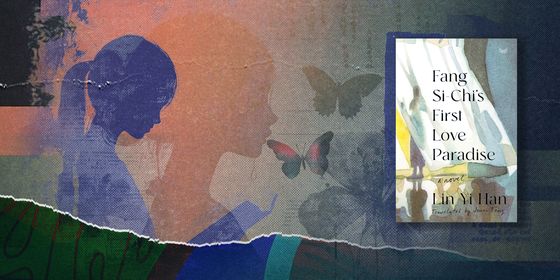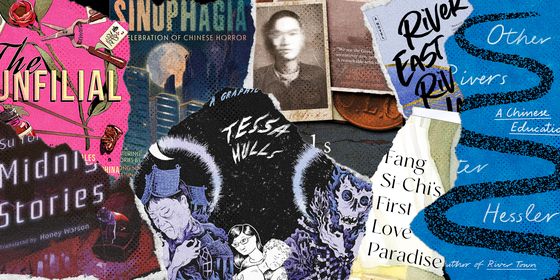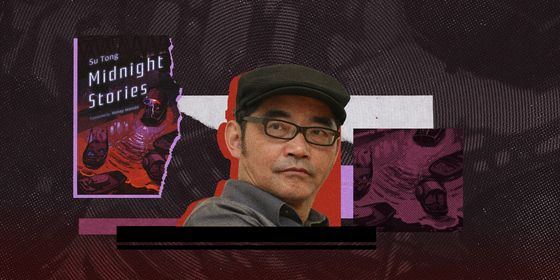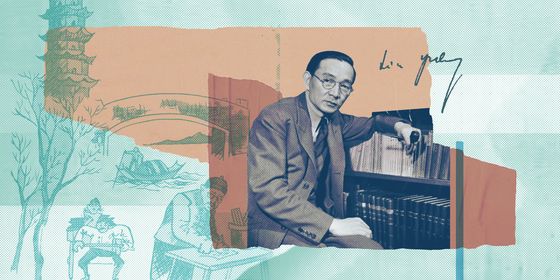In “Imperial Twilight,” historian Stephen Platt shows how flawed decisions led to full-blown conflict between two mighty trading partners
Few events in modern Chinese history come loaded with as much symbolic baggage as the First Opium War of 1839 – 1842. For many historians in the People’s Republic, the conflict marks the beginning of China’s modern era. Generations of Chinese schoolchildren are taught how the Treaty of Nanjing, signed in 1842 at the conclusion of hostilities, was the beginning of a “Century of Humiliation.”
It is a story often told—although rarely well. For some, the conflict was clear evidence of rapacious foreign powers declaring war against a peaceful nation for the interests of drug traffickers and imperialists. For others, it was a lesson well taught about an arrogant and sclerotic regime, unwilling to join the modern comity of nations and stubbornly refusing to offer the benefits of free and fair trade to its subjects.
Historian Stephen Platt’s Imperial Twilight: The Opium War and the End of China’s Last Golden Age helps to hew away these polemical extremes to craft a character-driven narrative that’s one of the best accounts (in English) of the decades and decisions leading to war.
This is a book about how the Opium War came to be—“how China declined from its 18th-century grandeur and how Britain became sufficiently emboldened to take advantage of that decline,” Platt writes. “The central question…is not how Britain won…rather, the central question is a moral one: how Britain could have come to fight such a war in China in the first place—against, it should be noted, savage criticism both at home and abroad.”
As a historian, Platt has made something of a career remapping well-trod historical terrain. His previous work, Autumn in the Heavenly Kingdom, placed the events of the extraordinarily bloody Taiping Rebellion (1850 – 1864) in a much-needed historical context. But whereas the Taiping was an epochal event of immense scale, often overlooked in world history, the Opium War was, as military engagements go, a relatively minor sideshow, whose symbolic importance came to overshadow the actual events.
There is no attempt here to downplay the shamelessness of the opium merchants and their supporters in promoting a war to protect their narrow economic interests, wrapped in the bunting of national honor. Much as the American Civil War was primarily over slavery, this was a war, first and foremost, about opium.
However, to focus exclusively on that is to ignore other important dynamics which would have long-lasting repercussions for China and the world. Positive, even envious, appraisals of China’s civilization in the 17th and 18th centuries had given way to scorn and contempt by the Industrial Age. This change reflected changes in how “the West” interacted with China in the 19th century, but also an unfortunate reality: In the early 1800s, China, or rather the Great Qing, was an empire in decline.
The government was struggling to manage internal rebellions like the Taiping, a frequently anarchic coast, as well as a sharp decline in bureaucratic and military morale. For a court besieged by crises, which all demanded the emperor’s attention, a handful of foreign merchants, whining about trade imbalances on the edges of the empire, hardly seemed a priority.
Yet the Qing were keenly aware of the dangers of provoking a war. Officials regularly sent intelligence to Beijing warning their coastal defenses would be little match for a European navy in high dudgeon. The court’s error was not ignorance of the perils, argues Platt, but rather a naive faith in the power of trade to prevent a conflict. They believed that the foreign powers would not jeopardize their lucrative commercial interests—however constrained—by declaring hostilities.
These “foreign powers” were a bumptious and audacious assembly of adventurers, sojourners, traders, smugglers, explorers, and seekers of fortune. Both individually and in loose confederation, they were prone to challenge authority, including the British East India Company (which itself often rode roughshod over parliamentary objections back home), agents of their own governments, and Qing officials.
The Canton System (1757 – 1842), which governed European trade on the China coast was an inherently limiting set of policies and practices, but not necessarily unfair. It was an extension of arrangements which had worked well for centuries between China and their frontier trade partners. Arguments to overturn established policies in the name of free and fair trade, and increasingly strident requests that China play by the “international norms of commerce,” were met by bemused disdain on the part of Qing officials, who felt the real problem was the inability of these upstart traders to appreciate their emperor’s benevolence.
This is not really a book about a warfare, though, much less a blow-by-blow account of the battles between the forces of the British and Qing Empire. That’s slightly surprising, given the visceral descriptions of battles in Autumn in the Heavenly Kingdom, but there are other books, including Julia Lovell’s 2015 The Opium War: Drugs, Dreams, and the Making of Modern China, which may be of more interest to military enthusiasts.
Instead, Platt artfully reconstructs the world of coastal China, and takes us through the halls of power in Beijing and London where flawed decisions—often based on faulty intelligence—would ultimately lead the two into open conflict.
Platt blends scholarly rigor with an accessible eye for story and character. As with his earlier books, he introduces us to the personalities behind the monuments and documents: The foppish diplomat Lord Napier, the spoiled American ingénue Harriet Low, John Murray Forbes (whose efforts in Canton would eventually fund the American dynasty), and the eccentric Sinologist Thomas Manning, with his Chinese clothes and waist-long beard. Fresh takes on famous figures, such as the hapless government agent Charles Elliott and his counterpart— Commissioner Lin Zexu (now revered as a patriotic hero, but whose failure to control the conflict led to his dismissal and exile at the time)—interweave the personal with the political.
And, of course, there is opium, the casus belli, even though the drug goes unmentioned in the Treaty of Nanjing. Platt argues that opium merchants had more to lose by legalizing their traffic (having already made significant investments in ships and other tools of smuggling) than opening the trade to competition.
Chinese authorities bet that the foreign traders would act in their own rational self-interest. Unfortunately, they were only half right. The opium merchants and their supporters were ardent, enthusiastic, and often cynical proponents of self-interest, but rarely did so in a way which made sense to Chinese officials.
Little wonder then that, in this age of Twitter-fueled trade disputes, Beijing seem disinclined to take demands to change their trade policy seriously. Surely, the relevant organs must wonder, their foreign counterparts will act in their own rational self-interest. It may be unlikely that today’s tensions will lead to kinetic warfare, but the mistakes and misunderstandings that lead up to the Opium War seem grimly destined for a curtain call in the 21st century.
The Drug War is a story from our issue, “Modern Family.” To read the entire issue, become a subscriber and receive the full magazine.












